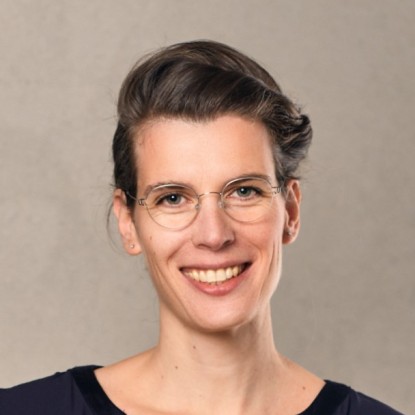Tireless commitment to human and technical networking
Interview with Prof Dr Dr h.c. Ralf Steinmetz before his retirement
2024/10/14 by Christine Wachter
After 28 years at the Technical University of Darmstadt, Professor Ralf Steinmetz is retiring. Until the end of the special research centre ‘MAKI – Multi-Mechanism Adaptation for the Future Internet’, he has agreed to take on all tasks as its spokesperson. In this interview, the head of the Multimedia Communication Lab at the etit Department and Member of courtesy at the Computer Science Department looks back on this time. He talks about challenges and his grand vision, provides insights into how the collaboration between different researchers and different technical communication systems has been successful – and reveals how research and teaching can continue to be successfully organised in the future.

With tireless dedication, Prof. Dr.-Ing. Dr. h.c. Ralf Steinmetz not only established and headed the Chair of Multimedia Communication at TU Darmstadt. He was also the driving force behind the collaboration of leading scientists from various universities in the DFG Collaborative Research Centre ‘MAKI – Multi-Mechanism Adaptation for the Future Internet’. During the maximum funding period of twelve years, ending in 2024, the Collaborative Research Centre successfully laid the foundations for an adaptable Internet of the future.
The vision of seamless communication has accompanied Ralf Steinmetz throughout his career. His scientific expertise and commitment to it have earned the busy etit and computer science professor several awards, including an honorary doctorate from RWTH Aachen University, the appointment as GI Fellow of the German Informatics Society and ITG Fellow of the Information Technology Society in the VDE, as well as being the first German scientist to be appointed both an IEEE Fellow and an ACM Fellow.
In addition, Ralf Steinmetz has always been committed to realising technical innovations in spin-offs and in teaching. In this interview, he talks about his time at TU Darmstadt and how networking can succeed.
Professor Steinmetz, how has teaching in your subject area developed during your time at TU Darmstadt?
In teaching, we have spent many years trying out new ways of skilfully using information technologies and applying them as prototypes: For example, e-learning since around 2000, which was made possible by the e-learning centre founded at the TU at that time. Or the concept of the flipped classroom – we introduced this during coronavirus.
Are there any particular milestones or developments that you have witnessed?
Corona in particular. It was the start of the widespread use of networked learning and teaching. It is now commonplace. Also worth mentioning here is the gradual shift from pure writing on slides and paper to digital presentations – and today's skilful hybrid forms of both. The best of both worlds, so to speak.
What challenges have inspired you the most during your career as a professor at TU Darmstadt?
At the TU, there was a deliberate change from application-orientated, mainly industry-funded research to basic research funded by the DFG, foundations, the federal government and the federal states, to research topics that allow both. I have found many very good interdisciplinary contacts, partners and friends here. For me, the motto is ‘Can't do it, doesn't exist’. You can find obstacles everywhere – and then learn from them and move on.
What role have students played in your academic work during your time at the university?
Students are the be-all and end-all for our future – and not just at TU Darmstadt. Some go into industry, others do a doctorate and become scientists, while others found new companies.
What experience has shaped you the most?
We need a very good network. Joint retreats are an excellent way to build such networks. This year, for example, the KOM Lab travelled to the Kleines Walsertal for the 28th time, to the highly recommended Darmstadt House.
How do you see the future of your discipline at TU Darmstadt?
A world without technical networking is no longer conceivable today. Yet the communicating technical systems, both hardware and software, are very complex. People still have to know and invest far too much to simply use these systems. Where are the resilient communicating technical systems in today's chaotic world? I am delighted that the etit department has been able to recruit my successor Björn Scheuermann, a highly committed university lecturer and outstanding researcher, who will now be working on these challenges.
What developments and opportunities do you see for future generations of students and researchers?
In research, other goals should be prioritised in addition to the usual high citation index. In particular, spin-offs should be promoted. In teaching, project-based learning and learning in an international context should be increasingly emphasised. Different subject areas and disciplines need to work together more than ever – and have the opportunity to do so. In teaching and research, I also see great potential in our alumni, who we should involve much more.

